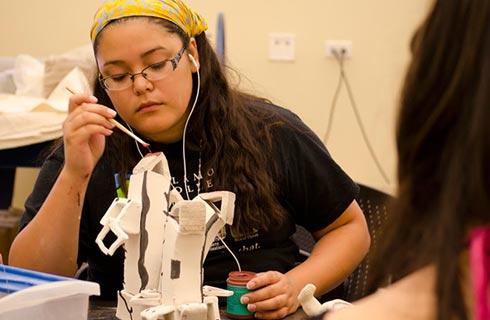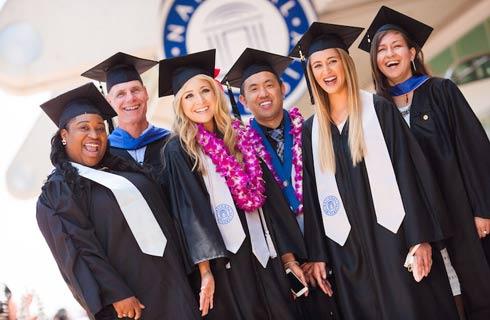Bachelor of Music Education in Instrumental Music Education

学历文凭
Bachelor Degree

专业院系

开学时间

课程时长

课程学费

国际学生入学条件
Official IGCSE, A-Level, IB, or AP results if taken.
TOEFL iBT/TOEFL Home Edition: 70, IELTS: 6.0
Cambridge English: 169, No individual score below 162
IDP—雅思考试联合主办方

雅思考试总分
6.0
- 雅思总分:6
- 托福网考总分:70
- 托福笔试总分:160
- 其他语言考试:Pearson Test of English Academic: 48 No individual subscore of below 44
CRICOS代码:
申请截止日期: 请与IDP联系 以获取详细信息。
课程简介
相关申请
 预科
预科 奖学金
奖学金 实习机会
实习机会 在校学习
在校学习 跨境学习
跨境学习 校园授课-线上开始
校园授课-线上开始 在线/远程学习
在线/远程学习
开学时间&学费
学费信息仅供参考,请与IDP联系以获取详细信息
| 开学时间 | 时长 | 学费 | 地点 |
|---|
学校排名

世界排名401
数据源:
泰晤士高等教育世界大学排名
关于塔尔萨大学

塔尔萨 大学坐落于塔尔萨市中心向东两英里处,距离塔尔萨国际机场约10分钟车程。塔尔萨市是一座充满活力的城市,并以其丰富的文化和科技资源而闻名。学校位于美 国中部地区著名的66号公路。塔尔萨大学自1894年建校以来汇聚了多元化的学生群体。校园生活社区为国际学生营造了一个良好的学习环境,并为校内学生俱 乐部及组织活动的开展提供了便利。洛顿演艺中心及学生会活动丰富了校园社区的娱乐内容。国际学生可申请基于优秀学术成绩的国际领导力奖学金,名额有限。每学年奖学金金额不等,学术成绩优秀的国际学生可续领奖学金。仅靠奖学金无法负担全部学费,大部分学费仍需个人负担。塔尔萨大学致力于为学生提供良好的学习环境,只有不到3%的班级人数达到50人或以上。师生比为1:11,平均每班19人。
本校相关课程

Master of Arts in Museum Science and Management
学历文凭
Masters Degree
开学日期
课程费用总额


法学博士/产业组织心理学文学硕士
学历文凭
Combined Graduate / Doctoral Degree
开学日期
课程费用总额


法学博士/历史文学硕士
学历文凭
Combined Graduate / Doctoral Degree
开学日期
课程费用总额


法学博士/地球科学理学硕士
学历文凭
Combined Graduate / Doctoral Degree
开学日期
课程费用总额


法学博士/英语文学硕士
学历文凭
Combined Graduate / Doctoral Degree
开学日期
课程费用总额


Juris Doctor / Master of Science in Computer Science
学历文凭
Combined Graduate / Doctoral Degree
开学日期
课程费用总额

其他相关课程

音乐文学士[一般]
 滑铁卢大学
滑铁卢大学学历文凭
Bachelor Degree
开学日期
课程费用总额


音乐文学士(荣誉学位)
 圣弗朗西斯泽维尔大学
圣弗朗西斯泽维尔大学学历文凭
Bachelor Degree with Honours
开学日期
课程费用总额


音乐学硕士
 达尔豪斯大学
达尔豪斯大学学历文凭
Masters Degree
开学日期
课程费用总额


音乐学士
 达尔豪斯大学
达尔豪斯大学学历文凭
Bachelor Degree
开学日期
课程费用总额


音乐文学士
 爱德华王子岛大学
爱德华王子岛大学学历文凭
Bachelor Degree
开学日期
课程费用总额


音乐教育学士
 爱德华王子岛大学
爱德华王子岛大学学历文凭
Bachelor Degree
开学日期
课程费用总额










 美国
美国